Story highlights
Three possible 2020 hopefuls joined national security committees this year
A CNN review of the committee records sheds light on the senators' foreign policy worldviews
They have used their platforms to challenge the Trump administration on foreign policy
It wasn’t hard for generals to prepare for Sen. Elizabeth Warren’s first question at the Senate Armed Services Committee hearing.
“Gen. (David) Goldfein, would a significant reduction in funding to the State Department and other non-defense security agencies and programs make the Air Force job of defending America easier or harder?” Warren asked the Air Force chief of staff in June.
The Massachusetts Democrat and potential 2020 hopeful asked a version of the same question to Pentagon officials at 11 armed services hearings this year, getting the military brass to break repeatedly with the commander- in-chief’s proposed deep cuts to the State Department.
Warren, who was elected to the Senate in 2012, was appointed to the Senate Armed Services Committee this year in what many viewed as an opportunity to bolster her national security bona fides ahead of a possible 2020 presidential run.
New Jersey Sen. Cory Booker was picked for the Senate Foreign Relations Committee this year in a similar vein. And freshman California Sen. Kamala Harris was given a seat on the intelligence committee, where the panel’s must-see Russia hearings have already given a serious boost to her national profile.
A CNN review of the three senators’ performances on their respective national security committees shines a light into their foreign policy worldviews and how they are building a national security portfolio ahead of the 2020 Democratic presidential campaign.
All three have used the committee hearings to hammer the Trump administration — on the budget, on foreign policy, and on Russia — but there are also some differences likely to emerge if they do take the plunge to run for president.
Warren has been a studious member of the Senate Armed Services Committee, attending all but one subcommittee hearing out of the 40-plus committee hearings so far this year. In addition to focusing on Trump’s positions on the military budget and climate change, Warren has gone to bat for her home-state defense interests.
Booker has been less of a fixture on Foreign Relations, appearing to ask questions at just over a third of the panel’s hearings, the second-worst record among the 22 senators on the panel, according to a CNN review of the transcripts. But he was given the ranking member slot on the Africa and Global Health Policy Subcommittee, where he’s been able to push for hearings on specific issues.
While the intelligence committee typically operates behind closed doors, the panel’s investigation into Russia’s election interference has vaulted it into the most high-profile congressional committee this year, and Harris’ prosecutorial style was in the spotlight after she was interrupted twice by Chairman Richard of North Carolina Burr and Sen. John McCain of Arizona, both Republicans.
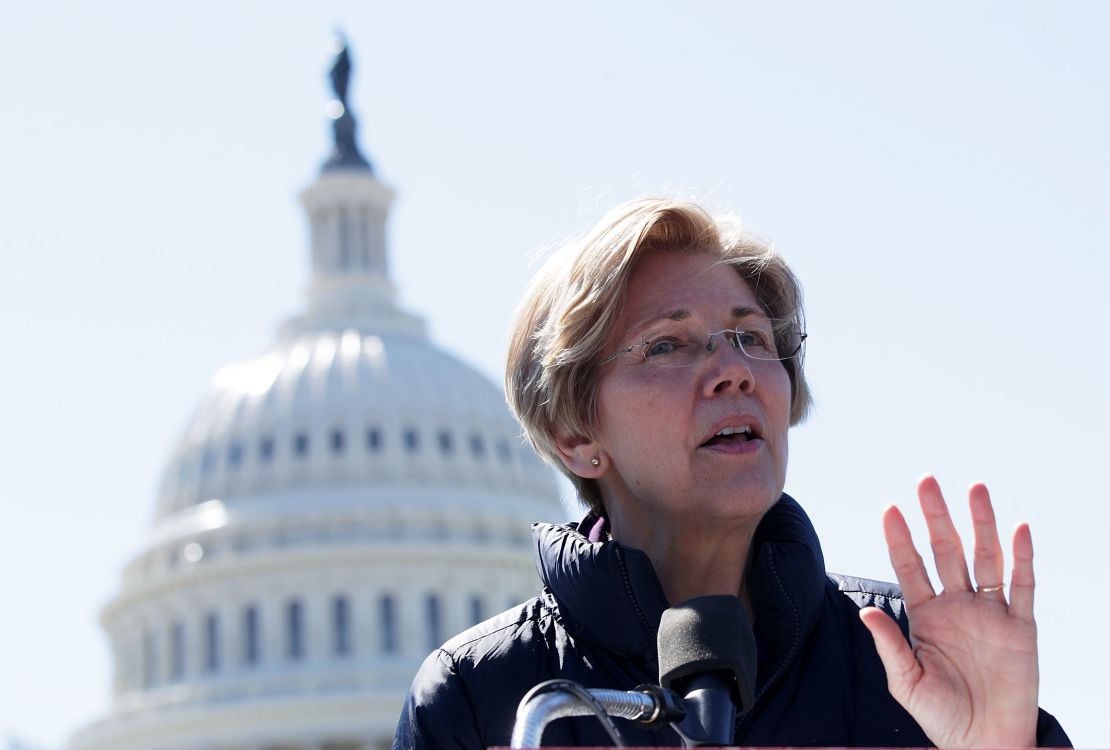
Warren: Massachusetts Institute of (Military) Technology
Warren’s move to the Armed Services Committee this year sparked already mounting speculation that she’s gearing up for a 2020 presidential run, as foreign policy is the biggest hole in her presidential resume.
It’s been a common platform for the national stage: Hillary Clinton joined the panel in 2003 ahead of her first presidential run. Virginia Sen. Tim Kaine — passed over as President Barack Obama’s vice president — took a seat on the panel when he was elected in 2013, improving his vice presidential resume for 2016.
Warren’s seat on the committee also gave her a ticket to join McCain, the panel’s chairman, on a July congressional trip to Afghanistan. And she took her own foreign trip this past month to Germany, Estonia and Poland.
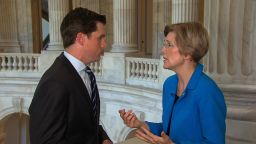
Warren has used her Armed Services perch to outline a case against Trump’s foreign policy. In addition to hammering home the State Department budget, Warren has raised climate change as a national security threat with several Pentagon officials and defended the Iranian nuclear deal.
“A Defense Department report from two years ago observed global climate change will have wide-ranging implications for US national security interests over the foreseeable future,” Warren said questioning Director of National Intelligence Dan Coats. “In short, this DOD report describes climate change as a threat multiplier. Director Coats, do you agree?”
She has also weighed in on foreign policy issues like Syria and Afghanistan. At a February hearing with the top US commander in Afghanistan, she said she believed the US “should not be in Afghanistan forever.”
RELATED: Trump to announce ‘path forward’ for US in Afghanistan
“Our end goal must be to help Afghanistan build a self-sustaining force that’s capable of securing the country so our US troops can come home,” she said.
But Warren hasn’t just been looking at national and international issues on the committee. She’s been sure to tout Massachusetts and the technological prowess the state’s companies and universities can provide to the military, particularly from the military’s Defense Innovation Unit Experimental (DIUX), a rapid-fire innovation hub set up by former Defense Secretary Ash Carter.
“Do you believe that DOD should strongly weigh the intellectual resources of a region when evaluating where to locate facilities such as DIUX and other research-based commands, especially in situations where the military is partnering with academic and technical organizations?” Warren asked James Mattis during his confirmation hearing for defense secretary in January.
The Massachusetts Democrat has also talked up a focus on technology over traditional military spending. “I think we should be budgeting our defense resources based on 21st century threats,” she said. “I want us to invest smartly, not simply rolling out more of the last century’s equipment off the production line.”
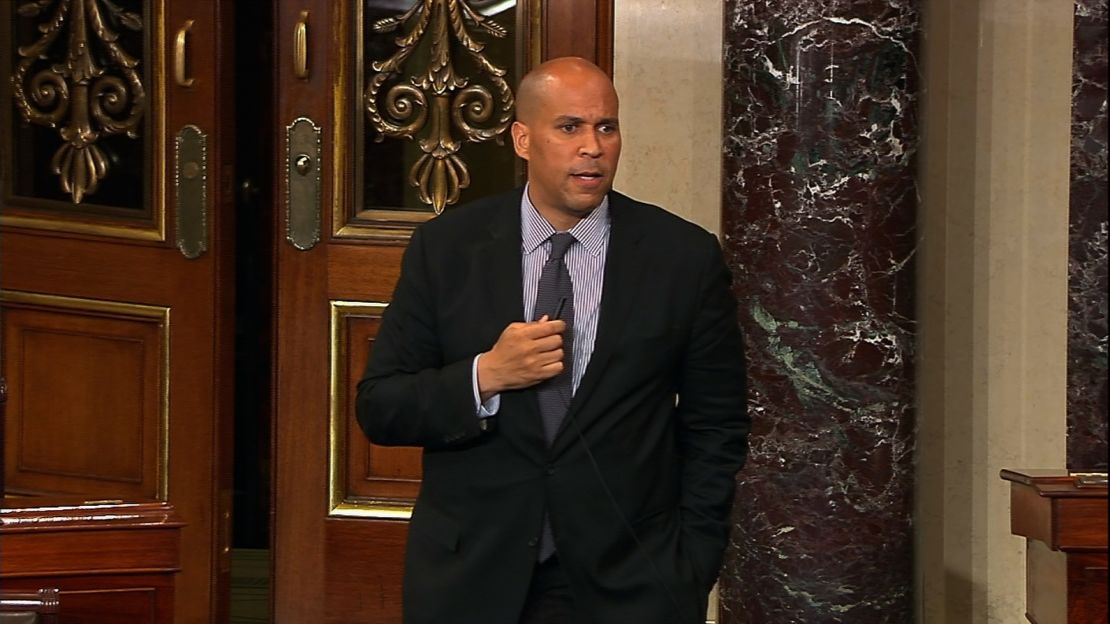
Booker: A chance to tackle the Obama playbook
Booker’s seat on the Senate Foreign Relations Committee is another path for senators harboring presidential ambitions — it’s the committee Obama served on ahead of his 2008 run.
In the early months of the Trump administration, the panel gave Booker a seat at the table for some of the most contentious confirmation hearings, including those of Secretary of State Rex Tillerson — whose confirmation was very much in doubt for a time — and US Ambassador to Israel David Friedman.
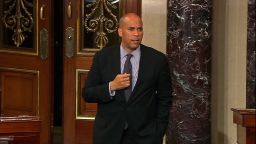
Booker’s first hearing was Tillerson’s marathon confirmation, in which he went after the former Exxon CEO over his criticisms of the Obama administration’s alleged weakness toward Russia after the invasion of Crimea. Booker hammered Tillerson for suggesting there should have been a show of military force and gave insight into his own worldview.
“You understand that if you put yourself in a defensive posture – there’s an old saying that if you pull a gun, you should be prepared to use it – that that could’ve quickly escalated into a conflict,” Booker said. “And you’re gonna be making decisions about whether we should have commit American troops, commit European troops.”
When Friedman testified, Booker elicited an apology for the nominee’s comments suggesting Obama was anti-Semitic and that Kaine was an Israel basher.
“Sir, you and I both from our family histories know a lot about people demeaning folks,” Booker said. “We know a lot about hate speech and hate words.”
Booker has raised the same concerns as Warren on the Trump administration’s proposal to slash budgets for the State Department and US Agency for International Development, arguing they are just as important as the military in the fight against ISIS.
“It is outrageous to me that you have an administration on one side of their mouth want to talk about being tough against ISIS and against terrorism. But probably what I would say, if you’re looking at a toolbox, one of the most critical assets we have is the activities being done to diplomacy, to USAID and through other CVE (countering violent extremism) efforts that are not about a military.”
The New Jersey Democrat has also raised concerns in hearings about Saudi Arabia’s role in Yemen, and said he was disturbed that the US military was still fighting terrorism under the 2001 military authorization, two issues that are of importance to the anti-war wing of the Democratic Party.
Booker has not asked questions at nearly two-thirds of the foreign relations panel’s hearings, including when Tillerson came back to the committee in June to discuss the State Department’s budget.
But he has been given a platform to take leadership on Africa issues as the top Democrat on the Africa and Global Health Policy Subcommittee, which has held hearings on conflict minerals and the situation in South Sudan, the latter Arizona Republican Sen. Jeff Flake gave Booker credit for scheduling.
Harris: Prosecutor, interrupted
Ordinarily, Harris’ seat on the Senate intelligence committee would have given her access to key national security and intelligence issues but little opportunity to speak about them.
This is no ordinary year.
The committee has held more than a dozen open hearings so far this year — highly unusual for the intelligence panel — and many of them have been national spectacles, including the testimony of fired FBI Director James Comey.
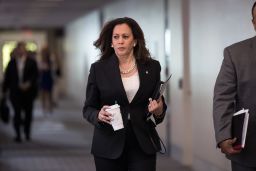
But Harris generated a wave of headlines of her own after her questioning of Deputy Attorney General Rod Rosenstein and Attorney General Jeff Sessions. A former prosecutor, Harris approaches hearings with an aggressive tack that appeared to rankle McCain and the chairman, North Carolina Sen. Richard Burr.
“Can you give me a yes-or-no answer, please?” Harris said to Rosenstin.
“Well, it’s not a short answer, senator,” he responded.
“It is either you are willing to do that or not …” she continued, before McCain piped up: “Mr. Chairman, they should be allowed to answer the question.”
Harris continued to press for a yes-or-no answer until Burr intervened.
“Would the senator suspend? The chair is going to exercise its right to allow the witnesses to answer the question, and the committee is on notice to provide the witnesses the courtesy which has not been extended all the way across — extend the courtesy for questions to get answered,” Burr said.
The incident sparked accusations of sexism toward Harris, but the same scenario played out a week later while Harris was questioning Sessions, who accused Harris of trying to rush him.
“I’m not able to be rushed this fast. It makes me nervous,” Sessions said.
RELATED: Once again, senators cut off Harris as she rails on Sessions
Harris’ questioning style, in some ways similar to another prosecutor-turned-senator, GOP Sen. Lindsey Graham of South Carolina, was on display during confirmation hearings, too, where she asked nominees for specific commitments.
“Are you willing to commit to this committee that if you come across information that relates to that incident of Russia tampering with the 2016 election, and if you become aware that that information has not been shared with this committee, that you will share it with this committee because it is significant?” Harris asked CIA General Counsel Courtney Elwood at her April confirmation hearing.
In addition to her committee work, Harris made her first trip to the Middle East as a senator in April, visiting Iraq and Jordan.
As for Harris’ foreign policy positions, the intelligence committee doesn’t provide a platform like the Armed Services and Foreign Relations panels, but some of her worldview does come through, including concerns about military spending.
“As we invest in fighter jets and aircraft carriers, Russia is investing in state-run media from which it can push out fake news,” Harris said at a March hearing. “As we consider investing more than $600 billion in our defense budget, Russia has approximately one-tenth of that amount in their budget and is developing its cyber warfare capabilities.”
This story has been updated.



















